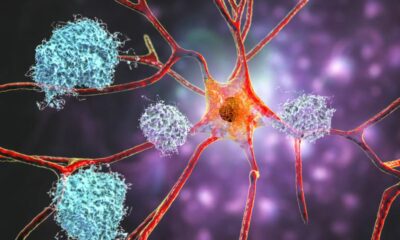The health of your brain is strongly impacted by daily activities and habits, thus taking care of yourself also means taking care of your brain.
The Centers for Disease Control and Prevention estimate that 5.8 million Americans currently suffer from Alzheimer’s disease or a related dementia. By 2060, that figure is anticipated to soar to 14 million.
Therefore, it’s critical that you take action to lower your risk. Let’s discuss some crucial routines that you may be neglecting and that may be causing daily memory loss.
- Absence of multivitamin use
One candy or tablet every day may be sufficient to preserve your memory. After conducting two trials, researchers at Mass General Brigham discovered that taking a daily multivitamin pill significantly improves memory and cognition in persons 60 years of age and older.
When taking a multivitamin, participants’ episodic memory—a form of long-term memory—improved. Compared to those who took a placebo, the multivitamin appeared to postpone cognitive deterioration by an estimated two years.
Naturally, you should consult your physician before using any new supplements.
- Choosing incorrect frying oil
Olive oil tastes wonderful and is beneficial to the brain. The blood-brain barrier, which is the protective lining of blood vessels in the brain, can be crossed by some of the antioxidant chemicals found in olive oil.
A study given to the American Society for Nutrition found that a daily consumption of more than half a teaspoon of olive oil is linked to a 28% lower risk of fatal dementia than a daily intake of little to no olive oil. Thus, if you are concerned about your memory, using different cooking oils can be a mistake.
- Assuming you won’t remember things well
Researchers have found that our self-perception might have a direct physical impact.
According to a research from Oregon State University, our expectations about aging influence how old we really become. At fifty, people who are optimistic about their aging live an average of seven and a half years longer than those who are not. Furthermore, a person’s ability to anticipate health issues at age 50, such as whether their memory would decline, has a direct bearing on their health over the next 40 years.
- Consuming unhealthily
Eating well has an impact on more than just your physical well-being; it also helps prevent dementia. Certain meals are beneficial, while others raise the risk.
Nuts, strawberries, leafy greens, salmon, and nuts are among the foods linked to a lower incidence of dementia. Fried chicken, yogurt, soft drinks, and certain common condiments have all been connected to a higher risk of dementia.
- Ignoring loud snoring
There is more to loud snoring than just insomnia. A person who snores may have sleep apnea, a medical disorder that causes them to stop breathing for several seconds or longer, many times per hour.
A study that was presented to the American Academy of Neurology discovered a connection between memory issues and breathing disturbances when you sleep. Researchers found that compared to persons without sleep apnea symptoms, those who reported having memory or cognitive issues were almost 50% more likely to have these symptoms.
According to the Mayo Clinic, reducing weight (if you’re overweight), staying off your back when sleeping, and avoiding alcohol right before bed are some strategies to stop snoring.
- Not using dental floss and brushing
Not just your dentist, but other medical professionals also urge you to maintain good oral hygiene. A study that was published in the journal Neurology discovered a link between gum disease and tooth loss and shrinking in the hippocampus, a region of the brain involved in memory and Alzheimer’s disease.
After adjusting for age, study participants with one less tooth and minor gum disease experienced a rise in brain shrinkage that was comparable to nearly a full year of brain aging. Individuals with extensive gum disease and multiple tooth loss experienced a reduction in size comparable to aging by 1.3 years.
- Refusing to purchase a hearing aid
Beyond only making it easier for you to hear, hearing aids have other health benefits.
According to the Aging and Cognitive Health Evaluation in Elders study, older persons with hearing loss who are also at risk for memory loss and other cognitive issues can slow down the cognitive decline process by using hearing aids. When older persons with mild to moderate hearing loss received hearing intervention, their cognitive deterioration was reduced by 48%.

 Diabetology2 weeks ago
Diabetology2 weeks ago
 Diabetology1 week ago
Diabetology1 week ago
 Diabetology2 weeks ago
Diabetology2 weeks ago
 Diabetology1 week ago
Diabetology1 week ago
 Diabetology1 week ago
Diabetology1 week ago
 Diabetology2 weeks ago
Diabetology2 weeks ago
 Diabetology1 week ago
Diabetology1 week ago
 Diabetology2 weeks ago
Diabetology2 weeks ago


















